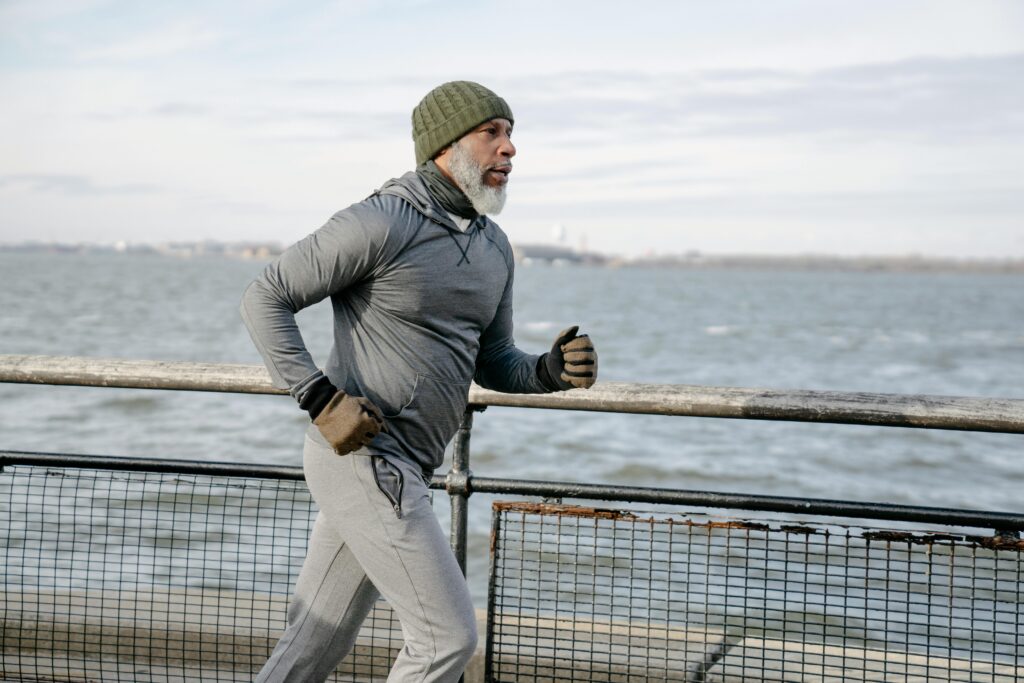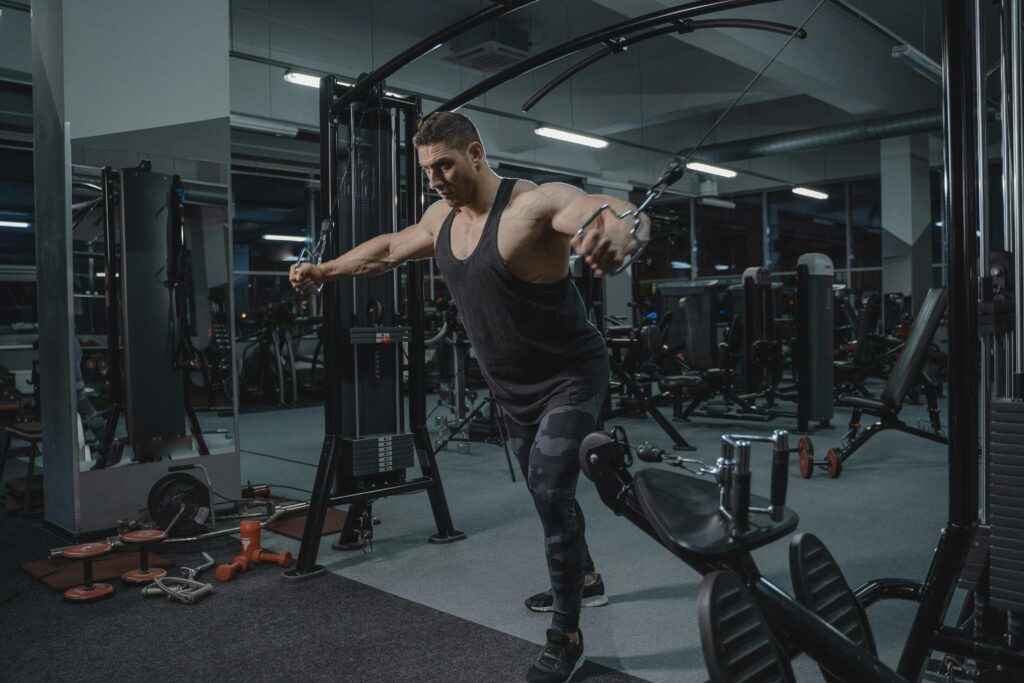I used to believe that figuring out the best time to exercise was some secret formula, like if I got it wrong, my workouts wouldn’t count. Some friends swore by early mornings, others said late nights gave them better results. Honestly, it left me confused. Over time, I realized something important: the best time to exercise isn’t about rules, it’s about what fits your life. For me, the end of the day was the perfect time, as my mornings were filled with rewarding tasks!
So, let’s explore what science suggests about workout timing, but also why your personal routine and consistency matter more than the clock.
Why the “Best Time to Exercise” Isn’t One-Size-Fits-All
We’re all wired differently. Some people wake up ready to conquer the world; others need three cups of coffee before they can think straight. That’s because our bodies follow a natural rhythm—our circadian clock—that influences energy, body temperature, and hormones.
Morning, afternoon, and evening all come with unique advantages and drawbacks. Instead of looking for the “one right time,” the smarter approach is to understand how different times impact your body, and then choose the window you can stick with.
Morning Workouts: Rise and Shine for Maximum Results

For many, the morning is the best time to exercise because it offers the benefit of jump-starting metabolism. Working out in the morning on an empty stomach, also known as fasted cardio, has been shown to accelerate fat-burning processes. After an overnight fast, your body is more likely to utilize stored fat as fuel.
- Enhanced Fat Burning: Studies indicate that fasted exercise can result in greater fat oxidation, particularly for those aiming for weight loss. You don’t need to overdo it; moderate aerobic activities like walking or jogging can effectively burn fat.
- Mental Clarity and Focus: morning exercise also sets the tone for your day. Exercise triggers the release of endorphins, improving your mood and ability to concentrate. Improved focus and energy help you tackle tasks more efficiently and stay productive all day. Studies found that individuals who exercise in the morning reported higher energy levels and mental clarity.
- Building Consistency: Many successful fitness lovers claim that the best time to exercise is when you’re most likely to be consistent. Mornings often offer fewer distractions, making it easier to stick to your routine.
Drawbacks: Morning exercise can be challenging if you’re not a morning person or your body feels stiff. If you struggle with energy in the morning, try incorporating light stretching or yoga to wake your body up.
Actionable Tip: If you’re someone who struggles with discipline, mornings might be your best bet. You get it done before excuses show up.
Afternoon Workouts: The Sweet Spot for Strength and Performance

While mornings are perfect for fat loss and consistency, afternoons offer a physiological advantage for those looking to maximize strength and performance. By this time, your body is entirely awake, and critical indicators like body temperature, muscle flexibility, and reaction time are at their peak.
- Improved Strength and Performance: A 2018 study published in Frontiers in Physiology found that individuals tend to perform better in the afternoon due to elevated body temperature. Warmer muscles improve strength, power, and endurance, making engaging in high-intensity workouts or weight training easier.
- Lower Risk of Injury: Exercising in the afternoon or early evening, when daily activities warm up your muscles, reduces the risk of strains or injuries. This mainly benefits those engaging in more strenuous or dynamic activities such as HIIT, running, or team sports.
- Balanced Hormones: Testosterone, a hormone critical to muscle growth and recovery, is higher in the afternoon, making it an optimal time for strength training. Additionally, cortisol levels tend to stabilize in the afternoon, leading to better post-workout recovery.
Drawbacks: While the afternoon offers performance advantages, it may be harder to fit a workout into a busy schedule, especially if you have a 9-to-5 job or other daytime commitments.
Actionable Tip: Use lunch breaks for quick, high-intensity workouts or a brisk walk. To take advantage of this performance peak, try a 20-30-minute weight-lifting session.
Evening Workouts: Grow and Build Muscle Post-Workday

Evening workouts help reduce stress and promote relaxation. After a long day, many people find that exercising helps them relax and sleep better. Despite common myths that exercising late disrupts sleep, research from the Sleep Foundation shows that moderate evening exercise can promote better rest.
- Maximized Endurance: Your body’s core temperature and endurance are at their highest in the evening. Studies found that endurance athletes often perform better in the evening, with increased stamina and oxygen uptake.
- Mental Decompression: Exercise can be a cognitive and emotional release after a busy workday. The release of endorphins in the evening can lower stress levels and help regulate mood, improving overall well-being.
- EPOC (Excess Post-exercise Oxygen Consumption): Evening strength training can lead to greater calorie burn post-workout, often referred to as the afterburn effect. Your body continues to burn calories even after exercising, helping with fat loss.
Drawbacks: While evening exercise has benefits, it might not work for everyone. Some people may feel too energized after exercising, making it difficult to fall asleep. Experimenting with your evening routine to see what works best for your body is essential.
Actionable Tip: If you’re working out in the evening, focus on cool-down routines that include stretching, yoga, or deep breathing exercises to ensure you wind down effectively.
Best Time to Exercise for Specific Goals
The best exercise time depends on your preferences and daily routine when trying to lose weight. However, certain times of day may have slight advantages based on how your body processes fat and energy.
For Weight Loss and Fat Burning
Morning workouts may help with calorie management since they can suppress appetite and encourage healthier food choices throughout the day. Fasted cardio is often promoted for fat loss, but what matters more is staying consistent.
For Building Strength and Muscle
Afternoon or evening training is often better for strength, because your muscles are warmer and reaction time is faster. Studies show people tend to lift heavier and perform better later in the day.
For Stress Relief and Mental Health
This one is flexible. Exercise reduces stress and boosts endorphins no matter when you do it. Evening sessions, though, may feel more therapeutic since they let you “reset” after a long day.
The Role of Consistency Over Timing
Consistency is king. If you want to age well, protect your joints, and maintain mobility, the “best time” is whenever you can train regularly. A 15-minute walk in the morning or an evening strength routine both contribute to long-term health.
Tips for Building Consistency:
- Set Goals: Set clear fitness goals like strength, endurance, weight loss, or health, and develop a routine that matches those goals
- Track Progress: You can use a journal or a fitness app to track your exercises, advancement, and how you feel after each session. This method can help you remain focused and stay motivated.
- Create a Support System: Whether it’s a workout buddy, personal trainer, or fitness community, having support can help you stick to your routine.
Actionable Tip: Experiment with different workout times for a few weeks
How to Decide Your Best Time to Exercise
Here’s a simple truth: the best workout is the one that actually happens. Instead of stressing about the science, ask yourself:
- When do I feel most alert and energetic?
- What’s my work and family schedule like?
- Am I more consistent at one time over another?
Try experimenting for 2–3 weeks at different times of the day. Journal your energy levels, mood, and progress. You may notice patterns that help you lock in your ideal time.
Tips to Make Exercise Work at Any Time of Day
Here are some practical tips to help you make the most of your workout schedule:
- Prep ahead:
Lay out clothes and gear the night before.
- Warm up smarter:
Spend extra time on mobility if you train early.
- Use breaks:
Short lunchtime workouts can be surprisingly effective.
- Prioritize recovery:
Sleep, hydration, and stretching matter more than timing.
- Stay flexible:
Life will disrupt your schedule sometimes, adapt instead of skipping.
FAQS
The healthiest time depends on your lifestyle and goals. Mornings are great for building consistency and boosting energy, while afternoons or evenings may give you peak performance.
Morning workouts improve discipline and daily focus. Evening workouts often allow for more strength and endurance. Neither is universally better, the key is consistency.
For fat loss, mornings may help. For muscle growth, evenings may work better. But the best results come from sticking with a plan you can sustain.
Yes. The biggest difference comes from how often you exercise, not the exact hour of the day. Pick the time that helps you stay consistent week after week.
Final Thoughts – It’s About Consistency, Not the Clock
I used to waste so much time worrying about finding the “perfect” workout window. What I learned is this: your body doesn’t care if it’s 7 a.m. or 7 p.m.—it cares that you move, challenge yourself, and recover well.
The best time to exercise is the one that fits your life, your energy, and your goals. Start where you are, commit to showing up, and let consistency do its magic.
Connect with us on Facebook and Instagram for a daily dose of inspiration and exciting updates! Join our vibrant community and be part of the conversation!

